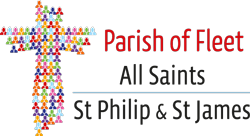Dear Friends,
The last few days and weeks have been a confusing and bewildering time for us all. A growing number across our communities have contracted the coronavirus, of whom a small proportion have died. A far greater number are now self-isolating, including many able-bodied men and women over the age of 70. Social gatherings have increasingly come to a halt. The economy is in freefall.
And yesterday we all received the news that church services are to be suspended for the time being, so as to seek to contain the virus: another unprecedented move at a time when the very word ‘unprecedented’ is becoming almost a cliché.
In all this there has inevitably been much talk of closures, cancellations and postponements, including the postponement of a visit of the Archbishop of Canterbury to our diocese, which was due to begin today. Is the Church just shutting up shop, people might be wondering – to which the answer is a resounding No! For this current crisis is a time for Christians (including we clergy) to step up not to give up: to let go of what’s less important so as to focus on what’s most important: to be not just the Church of England but the Church for England; to go deeper in our commitment to what Jesus described as the greatest commandment of them all: to ‘love the Lord our God with all our heart and mind and soul and strength, and to love our neighbour as ourselves’.
So how might we love our neighbour at this time? Perhaps through committing ourselves to ten acts of kindness every day, especially in relation to those who are poorest and most disadvantaged among us: making sure that our Foodbanks remain properly stocked with provisions and volunteers; leafleting streets with offers to pray and to help; arranging for daily phone calls to those who are frail and housebound; joining in with local community initiatives (because Christians don’t have a monopoly on good ideas or compassion).
Even the self-isolating can love their neighbour at the end of a phone-line, or in front of a computer, or by writing a good old-fashioned letter. How about expressing your appreciation of your Vicar, for example, at a time when she or he is likely to be feeling really pressurised?
One of our churches has followed the Italian example in providing a little outdoor concert for those who are self-isolating in a block of flats in their parish. Another has taken round a hamper to their local GP surgery, to express their huge admiration and support of those on the frontline. Clergy will shortly be invited to join a diocesan Facebook group to share good ideas and learn from one another; and do please consult our diocesan website daily as we respond to the most pressing questions that are cropping up in our churches and our schools.
Loving our neighbour is one thing, but how about loving the Lord our God when corporate worship is on hold? What might that look like?
As you know, we’re in the season of Lent, 40 days and 40 nights in which Jesus went into self-isolation, to be tested, yes, but also to pray, to meditate on the scriptures and to deepen his sense of calling for the future. During that time he was echoing the 40 years that Israel spent in the desert before entering the Promised Land: a time in which there was no church or temple, but just a makeshift tent (the tabernacle) in which Moses used to meet with God day by day.
So how might we meet with God over this time as we take time out to pray, to meditate on the scriptures and to reflect on our calling, now and in the future? What’s our tabernacle? Again parishes around the diocese are being really creative on this one, keeping their churches open where possible, providing spiritual resources for those who need them, making use of technology to help people feel connected, and above all praying, and calling others to join in. This coming Sunday the Archbishops have called us to a Day of Prayer, symbolised by putting candles in the windows of our houses and together lighting it at 7pm. And again there are some wonderful resources appearing on the diocesan website to help spiritually nourish us during this time in the wilderness.
Loving God, loving our neighbours; and how important too, to love ourselves at this time: to be kind on ourselves as well as others, as we all adjust to a rapidly shifting landscape.
And so finally to God’s Word through the prophet Isaiah: that ‘I will give you the treasures of darkness and the riches hidden in secret places, so that you may know that I am the Lord, the God of Israel, who calls you by name’ (Isaiah 43:5). So what might be the treasures of darkness during this time?
Perhaps a new togetherness as a nation, following the deep divisions of the Brexit debate. Perhaps a new connection between the church in England and the people of England. Perhaps deeper discipleship and new vocations arising out of those forty days and forty nights of self-isolation (or however long it lasts). Perhaps a new commitment to prayer, and above all a new recognition of the sheer wonder of the Christian gospel – that nothing (not even loneliness or sickness or death itself) can separate us from the love of God in Christ Jesus.
And, in recognition that the call to suspend public worship fell on St. Patrick’s day, a prayer from St Patrick’s Breastplate:
Christ be with me, Christ within me,
Christ behind me, Christ before me,
Christ beside me, Christ to win me,
Christ to comfort and restore me,
Christ beneath me, Christ above me,
Christ in quiet, Christ in danger,
Christ in hearts of all that love me,
Christ in mouth of friend and stranger, Amen.
Every Blessings,
Bishop Andrew
Listen or watch this message here
